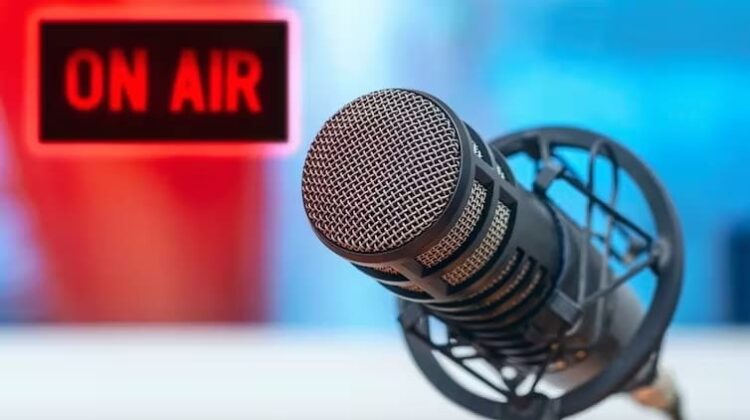
Twitter drops ‘government-funded’ label for media organisations – here’s what it should use instead
Catherine Johnson, University of Huddersfield
After objections from a number of major media organisations, Twitter appears to have dropped its media account labels. The labels drove at least two media organisations from the platform, and enraged followers of many others.
The BBC pushed back against its initial designation of “government-funded media”. This was highly misleading given that the BBC is funded primarily through licence fees paid directly by the public.
“Our goal is simply to be as truthful and accurate as possible. We’re adjusting the label to be ‘publicly-funded’, which I think is perhaps not too objectionable,” Twitter CEO Elon Musk told the BBC in an interview.
US public radio station NPR was the first to stop tweeting after being labelled “government-funded”. More than 99% of its funds do not come from federal sources, and it retains editorial independence from the US government. Even this label was a step down by Twitter, which had first assigned it “state-affiliated”. Canada’s CBC followed a week later.
All of these designations risk muddling the already misunderstood world of media funding. But Twitter doesn’t need to concoct a new label. There is already a term that exists to describe these organisations: public service media.
Twitter’s use of designations fundamentally misunderstands how public service media is funded and operates. And, as global association the Public Service Media Alliance has pointed out, at a time of heightened disinformation it risks turning people away from accurate, reliable and trustworthy sources of information.
Public service media has its origins in the UK in the 1920s. Recognising the power in the ability to communicate simultaneously with millions of people across large geographic areas, the BBC was established as a public service broadcaster to ensure that no single government had the ability to wield that power.
Funding was essential to this model. The licence fee introduced in the 1920s was designed to limit the government’s ability to control the BBC by interfering with its funding. It also instilled the ethos of the BBC as an organisation funded and owned by the people of the UK, not the state.
Crucially, with public funding also comes regulation. Remits and laws set out the responsibilities of public service media organisations and hold them accountable to independent regulatory bodies (Ofcom in the UK). Although funding public service media directly from taxation can open the doors to government interference, independence can be secured through robust legislation and a strong, independent regulator.
The danger of mislabelling
The danger of Twitter’s mislabelling of public service media as government-funded or state-affiliated is that it blurs the boundaries between media services that are owned and run by the state, and those that are independent from state control.
This is already a misunderstood subject. In my team at the University of Huddersfield’s research with UK audiences, we found significant variety in people’s understanding of public service media. Some believed that the BBC was funded by government, others that the UK didn’t have a public service media system at all. Public service media organisations that are state-funded are likely to be less trusted and seen as less independent.
It also leaves the door open for confusion between state-funded public service media – legislated to be independent from government – and state-run media. These organisations, such as the China Media Group and Russia Today, act as mouthpieces for the government itself. Labelling independent public service media organisations as government-funded could confirm misguided assumptions that government funding = government control.
Partly because of the remit for independent and accurate news, strong public service media leads to stronger democracies. Research indicates that public service media have a net positive impact on levels of political knowledge and may increase political participation.
Public service, government influence?
In reality, however, the role of public service media is becoming murkier in the UK. While legislation instils the importance of the BBC’s independence, in effect this is undermined by the fact that the government appoints the BBC’s chair, makes appointments to its board, and determines the level and nature of its funding.
The current chairman, Richard Sharp, is under investigation for failing to divulge his role in facilitating a loan for the former prime minister, Boris Johnson.
The UK government can also exert control over the BBC because it sets the terms and amount of the licence fee. There have been significant cuts over the past decade, and more recently, rumours about removing the licence fee and replacing it with a subscription model. This would fundamentally undermine that key tenet of public service media being owned by and serving the whole nation.
In this regard, Elon Musk is right. It does matter how the media is funded, and government influence over media funding (whether state controlled or public service) can undermine independence and trust.
Mislabelling public service media organisations will not help this situation. Greater independence from government control over funding for public service media would. A good start in the UK would be to follow the German model where an independent body is responsible for setting the terms of funding, much as already exists in the UK in relation to MPs’ pay.
This debacle also raises uncomfortable questions about the significant power Musk is able to wield through his ownership of Twitter. Whether that is in reportedly being able to control how visible and prominent his own tweets are, to setting the terms by which media organisations are understood by the public.
Catherine Johnson, Professor in Media and Communication, University of Huddersfield
This article is republished from The Conversation under a Creative Commons license. Read the original article.
